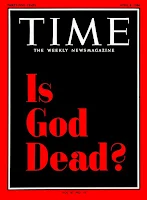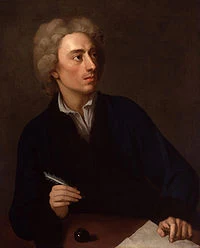Voyelles
Vowels
A noir, E blanc, I rouge, U vert, O bleu: voyelles
A black, E white, I red, U green, O blue: vowels
Je dirai quelque jour vos naissances latentes:
I shall tell, one day, of your mysterious origins:
A, noir corset velu des mouches éclatantes
A, black velvety jacket of brilliant flies
Qui bombinent autour des puanteurs cruelles,
which buzz around cruel smells,
Golfes d'ombre; E, candeurs des vapeurs et des tentes,
gulfs of shadow; E, whiteness of vapours and of tents,
Lances des glaciers fiers, rois blancs, frissons d'ombelles;
lances of proud glaciers, white kings, shivers of cow-parsley;
I, pourpres, sang craché, rire des lèvres belles
I, purples, spat blood, smile of beautiful lips
Dans la colère ou les ivresses pénitentes;
in anger or in the raptures of penitence;
U, cycles, vibrements divins des mers virides,
U, waves, divine shudderings of viridian seas,
Paix des pâtis semés d'animaux, paix des rides
the peace of pastures dotted with animals, the peace of the furrows
Que l'alchimie imprime aux grands fronts studieux;
which alchemy prints on broad studious foreheads;
O, suprême Clairon plein des strideurs étranges,
O, sublime Trumpet full of strange piercing sounds,
Silences traversés des Mondes et des Anges:
silences crossed by Angels and by Worlds
-- O l'Oméga, rayon violet de Ses Yeux!
-- O the Omega, the violet ray of Her Eyes!
L'étoile a pluré rose au coeur de tes oreilles,
The star has wept rose-color in the heart of your ears,
L'infini roulé blanc de ta nuque à tes reins;
the infinite rolled white from your nape to the small of your back;
La mer a perlé rousse à tes mammes vermeilles,
the sea has broken russet at your vermilion nipples,
Et l'Homme saigné noir à ton flanc souverain.
and Man bled black at your royal side.
-- Arthur Rimbaud (prose translation by Oliver Bernard)
What is poetry but sounds and images? Well, there's meaning, but for Rimbaud that's often a secondary consideration. He was 18 and in the middle of his affair with Verlaine when he wrote this sonnet-plus-envoi. Aside from "Le Bateau ivre," it's probably his best-known poem. But whether it's a serious account of the author's synaesthesia is doubtful. Notice that Rimbaud has altered the usual sequence of vowels -- AEIOU -- to put O at the end, just as omega is the final letter of the Greek alphabet. And that O is the one vowel associated not only with a color but also with a shape: the circle of a trumpet's bell and of the irises of "Her Eyes." And that blue is the only color missing from the envoi. Of course there are many interpretations, some hinging on Rimbaud's interest in alchemy, others on his indulgence in absinthe (aka "the green fairy"), still others examining his attachment to his blue-eyed mother. It's probably a bit of all of these, but none of them explains it fully. Which is why he's one of the greats.









